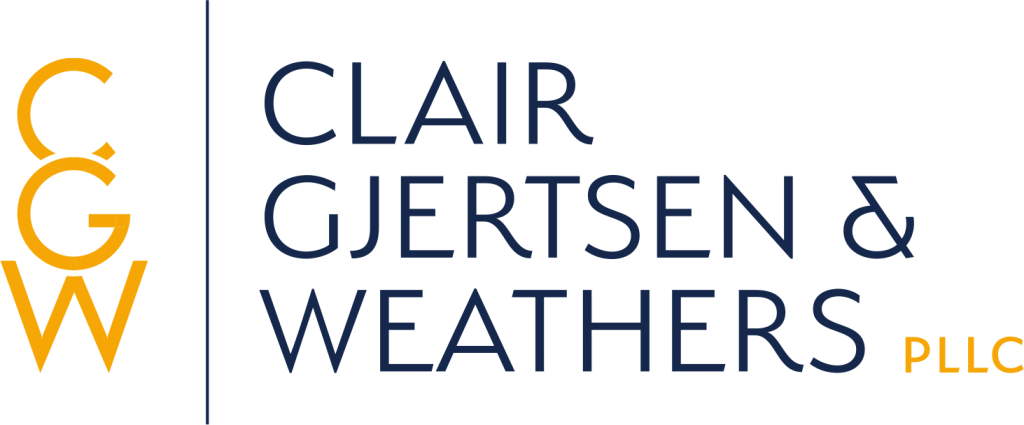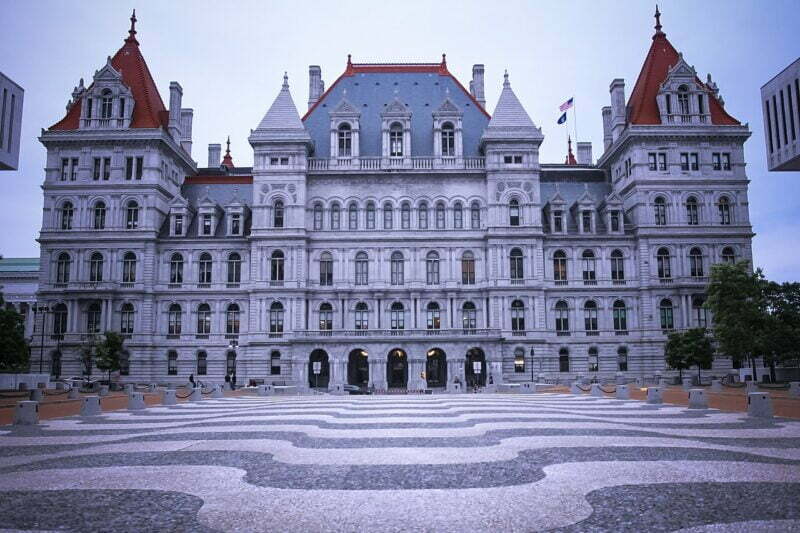NY & CT Foreclosure & Bankruptcy Attorneys
Schedule A Free Consultation 914.472.6202
The Foreclosure Abuse Prevention Act (FAPA) was signed by Governor Hochul effective December 30, 2022. Since then, the Courts have been split on whether this Act is retroactive.
What does this mean for the borrower on a residential mortgage? It could mean that the bank cannot foreclose based on the 6-year statute of limitations and the mortgage is canceled.
A recent article was posted discussing the New York Courts’ split on the Constitutionality of FAPA by Goodwin on July 7, 2023. https://lnkd.in/eS9NSjuc
Did you know that some student loans are eligible for standard bankruptcy discharge?
Although many student loans are subject to an “undue hardship” standard and require a separate proceeding to be discharged in bankruptcy, some private student loans can be discharged in a standard bankruptcy proceeding, just like most other unsecured consumer debts. For this subset of private student loans, a bankruptcy discharge order eliminates the consumer’s debt.
Some examples of student loans eligible for standard bankruptcy discharge include:
- Loans made to attend schools that are not eligible to receive U.S. Federal student aid, such as unaccredited schools and foreign schools (“non-Title IV schools”)
- Loans to students attending school less than half-time
- Loans made in amounts in excess of the cost of attendance, which are often disbursed directly to the borrower, instead of the school
- Loans made to cover fees and living expenses incurred while studying for the bar exam or other professional exams
- Loans made to cover fees, living expenses, and moving costs associated with medical or dental residency
- Other loans made for non-qualified higher education expenses
Student Loan Lawyers And Bankruptcy Attorneys That Can Help
At Clair Gjertsen & Weathers PLLC, we listen to our clients and empower them with knowledge, compassion, and creative solutions to relieve their financial anxiety and help them achieve their financial and personal goals.
Given the complexities of discharging student loans in bankruptcy, it is imperative to contact an experienced bankruptcy law firm. Clair Gjertsen & Weathers, PLLC is an experienced bankruptcy law firm who has helped thousands of people in financial distress. We understand that student loans can be overwhelming and daunting and we are here to help you through the process. Please give us a call to schedule a free consultation at 914.472.6202.
Foreclosure Abuse Prevention Act (FAPA) was signed into law by Governor Hochul on December 30, 2022.
This law intends to eliminate abusive and unlawful litigation tactics in mortgage foreclosure actions that manipulate the law and the courts in favor of mortgage bankers and servicers. What does this mean for homeowners? This means that the banks will not be able to continually discontinue and recommence a cause of action concerning mortgage foreclosures without strict adherence to New York’s six (6) years statute of limitations.
Clair Gjertsen & Weathers PLLC is available to answer any questions or concerns regarding this recent development as we have decades of experience in defending foreclosures. We invite you to contact us online or at 914-472-6202.
A copy of the bill is available here:
https://lnkd.in/etdKvvwV
With the recent increase in storms that have wreaked havoc in Westchester County by bringing severe flooding and causing incalculable amounts of property damage, the County has passed a new law, called the “Flood History Disclosure Law” requiring landlords to provide any potential tenant with a Flood History Disclosure form regarding the property before the lease is signed.
What changes were made by the Flood History Disclosure Law?
As of August 15, 2022, the new law compels landlords of residential and commercial properties to provide a written notice to prospective tenants or sub-tenants stating whether the property is located in a FEMA-designated Special Flood Hazard Area. The law also requires landlords, to the best of their knowledge, to notify prospective tenants or sub-tenants of any flooding that has caused damage to any portion of the property within the last ten years. This law also requires landlords to notify tenants or sub-tenants that are up for renewal on their lease. To streamline the process, the county has made a form that comports with this law to lessen the already strenuous burden on landlords.
What consequences befall Landlords that do not follow this law?
If a landlord does not follow this law and the tenant or sub-tenant sustains flood damage during their lease, the tenant or subtenant may file suit against the landlord in court for the recovery of such damages.
These changes make it more important than ever to speak with an attorney that is well versed in landlord-tenant matters. Clair Gjertsen & Weathers PLLC is experienced at drafting and negotiating leases to remove any stress from this already complex process. We offer free initial consultations to see how we can best lead you through any leasing matter. Please give us a call at 914.472.6202.
The importance of hiring an Experienced Landlord Tenant Attorney
These changes make it more important than ever to speak with an attorney that is well versed in landlord-tenant matters. Clair Gjertsen & Weathers PLLC is experienced at drafting and negotiating leases to remove any stress from this already complex process.
We offer free initial consultations to see how we can best lead you through any leasing matter. Please give us a call at 914.472.6202.
NY Residential Foreclosure Case
On July 21, 2022, the Supreme Court of the State of New York, County of Kings, granted the Defendants (borrowers) motion for summary judgment in HSBC Bank v. Freda Nierenberg, Reuben Nierenberg, Index No. 504903/2016.
Clair Gjertsen & Weathers, PLLC represented the winning borrowers in this action, and asserted that the bank had improperly sent notices under RPAPL 1304 by including the notice to both borrowers in one mailing. This decision upheld the recent holding made by the Appellate Court in the Second Department in Wells Fargo Bank, N.A. v Yapkowitz, 199 AD3d 126 (2d Dept. 2021).
What changes did Yapkowitz bring to foreclosure?
Briefly stated, the borrowers in Yapkowitz were a married couple that defaulted on a loan secured by a mortgage on their home. The bank sent to the borrowers in one mailing the required RPAPL 1304 notices. After some loan assignments and changes in servicing agents, the bank commenced an action against borrowers. After the borrowers raised the issue of how the bank complied with RPAPL 1304, the lower court ultimately found that the plaintiff(bank) failed to establish its strict compliance with RPAPL 1304, which “requires a separate notice to each borrower in a separate envelope”, and dismissed the foreclosure action. Wells Fargo Bank, N.A. v. Yapkowitz, 59 Misc.3d 1227[A], 2018 N.Y. Slip Op 50726[U], *8.
On the bank’s appeal, the Appellate Court upheld the decision and dismissed the bank’s complaint. The Appellate Court found that “notice cannot be deemed given until the date of mailing, in a separate envelope, of each 90–day “notice to the borrower” (RPAPL 1304[1]), which is read to mean a separate notice to each borrower.
Finally, the Appellate Court also recognized that permitting “a single notice jointly addressed to two or more borrowers and mailed in a single envelope to serve in lieu of a separately mailed notice to each borrower would transform the requisite standard of compliance from ‘strict compliance’ to ‘substantial compliance.’”
Therefore, the Appellate Court concluded that the lower court “properly dismissed the complaint insofar as asserted against the defendants.”
Have you defaulted on your mortgage payments and received RPAPL 1304 foreclosure notices?
You could still have legal rights to your home and potentially claim that the bank improperly mailed the RPAPL 1304 notices to you. Timing is of the utmost importance and you must speak with an attorney with knowledge of residential foreclosure and foreclosure defense.
Clair Gjertsen & Weathers PLLC has been helping people through this complex process for the last 40 years. We offer free initial consultations to see which option is the best fit for you to stop a foreclosure auction sale to keep your home.
Please give us a call at 914.472.6202.
When a property is foreclosed upon, generally because of a defaulted mortgage, it is sold at a public auction. The proceeds of the sale are used to pay the outstanding mortgage of the lender. If the price paid is more than the amount owed to the lender, the remaining funds are referred to as “Surplus Monies”.
For example, an individual defaults on their mortgage, and the Court Appointed Referee determines that the amount due to the lender is $300,000.00. The property is sold at a foreclosure sale, and a third party bids and pays $350,000.00 for the property. In that situation, the lender would be paid the first $300,000.00. But what happens with the remaining $50,000.00?
In such a case, the Court Appointed Referee will then deposit that amount with the New York State Department of Finance, which has the authority to disburse the funds to the proper party upon receipt of an order from the Court that handled the original foreclosure case.
Who is entitled to Surplus Foreclosure Funds?
In general, if no other liens or claims exist, the owner of the property which is sold at auction has the right to collect any surplus funds after foreclosure. However, if any liens or claims exist, they would have priority over the owner of the property to the surplus foreclosure funds. The lienor that would have priority over the owner are usually the second mortgage, judgment creditor, or another creditor like the IRS. For a lienor to have such a claim, that party must have been named as a defendant in the original foreclosure lawsuit and is required to have filed a Notice of Claim to Surplus Funds with the Court. Moreover, anyone with an interest or claim to the Surplus Monies, including the owner, must bring a “surplus monies proceeding” to have the funds disbursed to them.
How to Claim Surplus Funds from Foreclosure?
In a surplus monies proceeding, the Court requires that a title report be submitted for purposes of disclosing what liens are against the foreclosed property, as they must be paid in the order in which the liens were entered. The lienor making claim for the proceeds does not have to be in a specific priority position and can be the holder of a lien that is inferior to other liens. This lienor, however, is required to notify all others that possess a lien on the property so they then could assert their claims or assert priority. If, however, the other lienors fail to appear and/or fail to assert claims of a priority, then they may be barred from receiving any of the funds. Similarly, if the owner is noticed in the surplus money proceeding, then he/she can claim any remaining funds or can contest any of the lienors’ claims. After these liens on the property are paid in full, and if there are any funds remaining, then the property owner would be entitled to receive these monies.
What if no one claims the Surplus Funds after Foreclosure?
Once the Surplus Monies are deposited with the Court, the monies remain there until someone claims them. If, after five years, no one has claimed the Surplus Monies, then the clerk of the Court turns it over to the NYS Office of the Comptroller as abandoned property.
Have questions about Surplus Funds from Foreclosure?
Enduring your home being foreclosed on is a difficult process, but potentially obtaining surplus funds from foreclosure may help soften the blow. Clair Gjertsen & Weathers PLLC has been helping people through this complex process for the last 40-years. We offer free initial consultations to see if obtaining Surplus Monies is feasible. Please give us a call at 914.472.6202.






